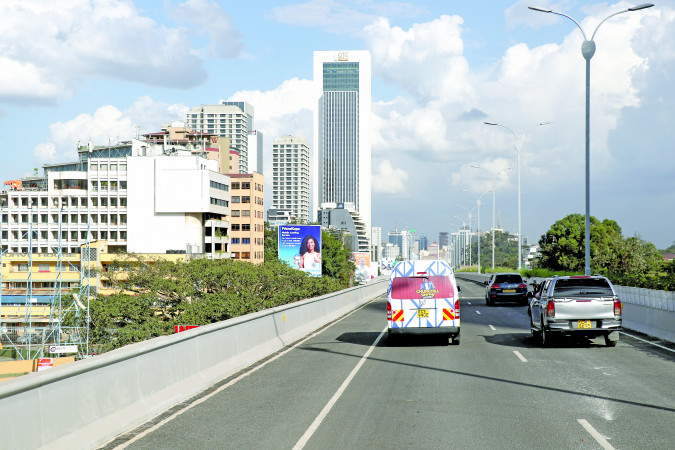New city road proves a hit with matatus despite higher fares
By Noel.Wandera, June 27, 2022Public transport commuters are warming up to the use of the multi-billion shilling Nairobi Expressway, saying the time they are saving is priceless.
The new elevated road whose cost is estimated to have risen to Sh87.9 billion, from the Sh65.2 billion initial budget estimate provided by the Kenya National Highways Authority (Kenha) is also turning out to be a major economic relief since traffic congestion is a big problem in Nairobi.
A study commissioned by the Nairobi Metropolitan Area Transport Authority (NAMATA) in 2019 ranked the city as the fourth most congested in the world, with an estimated revenue losses in excess of Sh60 billion a day in terms of reduced productivity due to hours Transport Cabinet Secretary James Macharia said while commissioning the expressway last month that it will exponentially reduce traffic along Mombasa road.
The tests have, however, unearthed challenges concerning issues around the ticketing system, high toll charges and exorbitant penalties for breach of law that must be streamlined for the road to operate without glitches. Among the early embracers are Public Service Vehicle (PSVs) operators, who said they were responding to commuters’ pressure to avoid the morning and evening traffic snarl-ups synonymous with the old Mombasa road.
“After receiving enquiries on whether we can use the Expressway from our passengers we decided to try it out,” says Boniface Mburu, a driver who plies his trade between the railway terminus and Katani, a distance of 20 kilometres.
Mburu, who spoke to the Business Hub yesterday said despite charging between Sh30 and Sh50 on above the normal fare of Sh100, feedback from passengers has been positive to the point they now offer options of using either the upper or lower deck.
Optimal usage
“You find that matatus using the Expressway fill up faster than those using the old road,” he says adding: “It takes me 10 minutes to Syokimau, unlike on the old Mombasa road where I can spend up to an hour or even more because of the jam.”
Like all projects under test, this one too, has exposed its downside which Kenha chairman Wangari Ndirangu said they are working to rectify.
Several matatu operators and commuters spoke of the need to reduce toll charges and introduce an efficient ticketing system at toll points to prevent traffic backing up. They also said high penalties for offenses were a turnoff likely to impact optimal usage of the utility if not addressed.
To access the Expressway from Haile Selassie Avenue, matatus pay Sh450 while those joining at Airtel must part with Sh360. The charges will be dollar-based to cushion Moja Expressway, a subsidiary of China Road and Bridge Corporation (CRBC), the operator from exchange rate losses. “Whenever a vehicle breaks down, that act of just alighting to diagnose the problem will cost you Sh4,000. If the vehicle requires towing, you are charged Sh25,000,” said Mburu. The cost way above the normal and negotiable prices of between Sh1,000 and Sh3,000, depending on where the vehicle is to be towed to.This is in addition to damaging installed infrastructures. Moja Expressway has partnered with Automobile Association of Kenya (AA) to provide towing services along the road.
Ndirangu said the biggest challenge they are seeing right now is the use of cash payment. Sixty-five per cent of receipts are through cash, as opposed to the Electronic Toll Collection System (ETCS), a factor the chairman said contributes considerably to the queues. He urged users to onboard the ETCS, which takes three seconds unlike cash, where on average motorists spend 30 seconds to accomplish the transactions.
“For the same amount of time somebody has paid in cash, 10 vehicles would have passed if you were to use the ETCS, “ Ndirangu said, adding that users also have the option of swiping a card, an exercise that takes 10 seconds.
